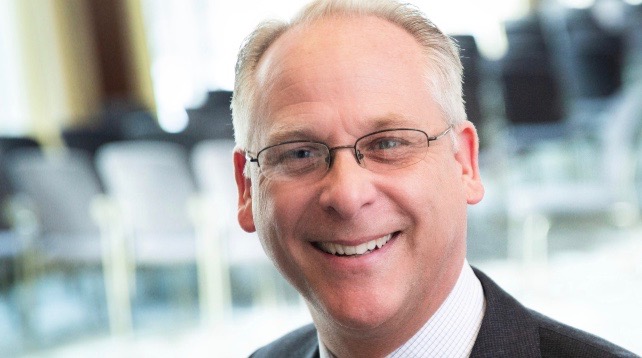
Christopher Ragan is an associate professor in McGill’s Department of Economics and Director of the Max Bell School of Public Policy. He also served as chair of Canada’s Ecofiscal Commission. The McGill Reporter sat down with him to discuss climate change and how public policy can help reduce the country’s carbon emissions.
Why do you think decarbonizing our economy is so difficult?
This is a classic example of what economists call an externality. There is this product on the market, oil, that leads to a bad outcome but there is no incentive to get producers and buyers to solve the problem. The daily world demand for oil is close to 100 million barrels a day, and every time it’s burned, emissions hurt people external to the initial transaction.
The problem is that there is still a demand for oil because it’s super useful. The only way to reduce this demand is to make it less attractive than alternatives. So, if solar becomes more attractive, and this has been slowly happening, people will move to that.
For example, we didn’t stop using horses because we ran out of them or because we disliked them. We stopped using them when a better alternative, the car, came along. End of horse industry as we knew it. Something similar will happen with oil.
How can we push or encourage industries to stop producing or using oil to accelerate the transition towards a greener economy?
We need an outside body to solve this problem, to change the rules. We typically rely on government policies to provide incentives for the private sector to change its behaviour. The only way we’ll move away from oil is by putting a penalty on it or by improving the alternatives.
So, one way of doing this is with a carbon tax. There are a number of government policies that could change outcomes and provide incentives for the private sector to change – revising building, fuel and emission standards, how we produce steel – however, I would argue that the single best policy is a price on carbon.
Are governments in Canada doing enough in terms of public policy to make a dent in the country’s emissions?
Not yet, but they’re working on it. If you look at this country in terms of climate policy, we are way further down the road than we were 10 years ago. We’re not yet there, though.
We now have a federal carbon tax, but it’s politically fragile. Alberta, Ontario and Saskatchewan are challenging the constitutionality of the federal carbon tax and there are Supreme Court hearings about this scheduled for March 24 and 25. If the federal government wins, we’ll see where that carbon price goes over time and what other policies will be put into place.
It’s slow going, but we’re moving in the right direction.
How do you feel about the divestment movement putting pressure on institutions, such as universities, to move capital away from the fossil fuel industry?
I just don’t think it achieves anything and it’s actually more about image. Divestment may make people feel good about themselves, but it doesn’t reduce emissions. If we’re really serious about reducing carbon emissions, divestment isn’t the way to go.
Another problem I see with divestment is how you come up with a logical list of firms you don’t want to invest in. If you say no oil companies, do you also say no trucking companies, no airlines? Are you going to say no banks that lend money to oil companies? If you want to be coherent, you also need to divest from companies who use oil, not just producers. You then start divesting from everything. No cement, no plastics, no pharmaceuticals, no aluminum. So, you just you get yourself into a major quandary.
More importantly, you aren’t accomplishing anything because if you sell these carbon intensive shares, someone else will buy them, so this has no impact on carbon emitters.
If public policy is the solution to bringing down carbon emissions, should governments establish environmental, social and governance goals to push financial markets to have responsible investing practices?
I think governments can very easily go too far in telling businesses how to run their affairs. However, one thing I could get behind is the idea put forward by Mark Carney, current governor of the Bank of England and former governor of the Bank of Canada, suggesting that publicly traded companies should be required to report their climate risks.
Currently, these companies are required to provide quarterly reports on all kinds of things to their investors. If a publicly traded company produces nickel, it has an obligation to provide information to its shareholders about the world nickel market so that they can reasonably assess risk.
Presently, companies aren’t required to report on climate risks. For example, if you want to build a pipeline and you really start thinking about what the world is going to look like in 40 or 60 years, would you still want to move forward? If your plan is to use this infrastructure for 60 years, but 30 years down the road, your project is economically obsolete, well that means that your company is facing huge risk.
Notice, none of this is about divestment. This is about firms of all types seriously considering the long-term risks they face because of climate change and climate policy. I think that would be huge because as soon as publicly traded companies start thinking about long-term climate and policy risks, financial capital will start to flow in different directions.
